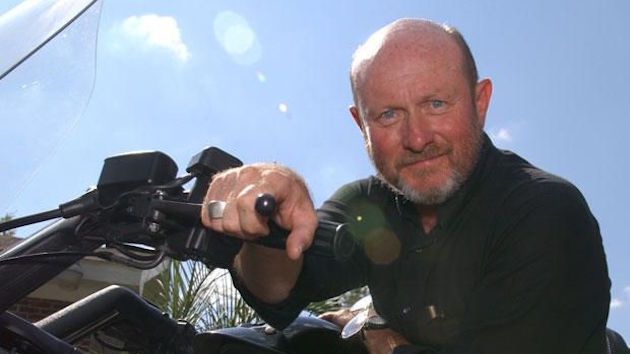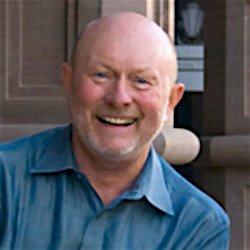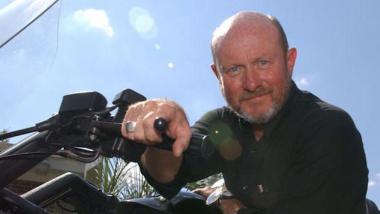
When it comes to opera in Chicago, Los Angeles, Charleston, San Diego, La Jolla, and elsewhere in the country, Marcus L. Overton was among its most prominent movers and shakers.
He died last month at age 75 in San Diego, where he lived since 1997. His career encompassed this impressive range of positions listed in his Broadway World obituary:
“... theater, opera, chamber music, dance, academia, serving as an advisory panelist for the National Endowment for the Arts, and broadcasting. His many management credits included production stage manager at Chicago Lyric Opera, where his colleagues included William Mason, later the company’s general director; general manager of the Ravinia Festival; director of performing arts at the Smithsonian Institution; executive director and then producing director of Spoleto Festival USA; and artistic administrator at La Jolla Music Society.”

He is survived by his husband Raymond A. Fluta. Overton left instructions that his ashes were to be taken to Paris, a city he visited yearly, and scattered on the graves of Oscar Wilde, Gertrude Stein, Alice B. Toklas, Marcel Proust, and Francois Poulenc.
Michael O’Daniel, of El Cerrito, who wrote the Broadway World obituary, and his wife, the soprano Sylvia Cooper, were friends and colleagues of Overton, dating from Cooper’s debut with Lyric Opera of Chicago in 1969. A veteran arts manager, journalist, and business consultant, O’Daniel told this to SFCV about Overton:
“It is impossible to do justice to Marcus Overton in a few words. He transcended the traditional concept of the Renaissance Man in the breadth of his interests, knowledge, skills, intellectual curiosity, and passion for anything in which he was involved.
“And when it came to acerbic wit, sarcasm, cynicism, whatever you choose to call it, I discovered that in Marcus I had at last met my match. For that reason, our email exchanges skewering many of the grand pooh-bahs of the arts world must remain forever unpublished.”
Born in Calhoun, Georgia, Overton was trained as an actor, graduated in 1965 with a bachelor’s in speech and theater, and made his professional debut in the same year in the title role of Shakespeare’s Richard III with Atlanta’s Southeastern Shakespeare Festival.
Besides his acting career, Overton soon began managing supernumeraries at Lyric Opera of Chicago. He became the company’s production stage manager from 1966 to 1972, then was named general manager at Ravinia under Executive Director Edward Gordon from 1973 to 1977.
From 1978 through 1983, Overton freelanced as a producer, including engagements with the Washington National Opera and fully staged productions of Otello and Falstaff for Carlo Maria Giulini and the Los Angeles Philharmonic. He also served as an advisory panelist for the National Endowment for the Arts, conducting more than 110 on-site evaluations over the next 10 years, and was consultant to other arts organizations in the U.S. and overseas.
In 1992, at the invitation of founding director Gian Carlo Menotti, Overton became executive director of Spoleto Festival USA in Charleston, South Carolina. He arrived in wake of the devastating 1989 Hurricane Hugo and subsequent crises in festival management and economy. Overton helped the festival stabilize and regain some of its former prominence.
Stepping down in 1995, while continuing to teach theater at the College of Charleston, he began a 20-year association with South Carolina ETV Radio as host and producer of Spoleto Today. He also produced and hosted six television specials about the festival, one of which won an Emmy Award.
Overton had lived in San Diego since 1997 and enjoyed a 20-year association with La Jolla Music Society, serving at various times as its program annotator, pre-concert lecturer and consultant for special projects as well as artistic administrator in 2006–2007.
Correction: Marcus L. Overton was never general director for the Chicago Lyric Opera, as stated in the originally published version of this article.

